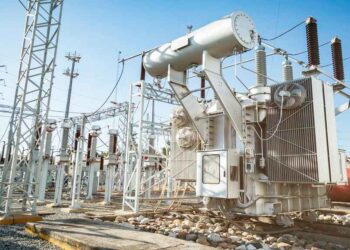After a botched financing attempt in 2023, the government has increased this year’s allocation to a record £1.5 billion to encourage the next generation of renewable energy plants.
Following the energy-driven cost of living problem, Energy Secretary Ed Miliband said that the extra £500 million for the next renewable energy auction signified a commitment towards Labour’s objective of providing people and companies with affordable, low-carbon power.
Following Russia’s invasion of Ukraine, wholesale gas and power prices skyrocketed. The previous administration decided to replace some of the resultant supply gap by issuing new licenses for the production of oil and gas.
The annual renewables auction, when energy companies compete for contracts for difference (CfD), did not draw a single offer for additional offshore wind power last year.
Energy developers argued it was because the massive cost hikes they had been facing since the wholesale price surge had not been considered by the government at the time.
In response to the criticism, the Conservatives increased the budget for the September auction to £1 billion; nevertheless, the new administration indicated that an even bigger investment was required to get new green power production back up to speed.
In the case of a significant price shock, the so-called budget under the CfD program protects both generators and customers by guaranteeing future prices.
Customers get a refund on their account when the price of power as a whole increases over the maximum amount that a generator may charge.
The difference between the negotiated price and the wholesale price of power is paid to the generator by the Treasury.
The revised budget estimates provide £1.1 billion for offshore wind.
This amount is an increase of £300 million above the amount the Conservatives had budgeted for.
The remaining amount is divided between proven renewable energy sources like onshore wind and solar, which account for £185 million, and growing energy sources like floating offshore wind and tidal.
In the case of a future gas crisis, the Energy & Climate Intelligence Unit predicted that the auction was likely to secure enough offshore wind to save every household’s annual energy cost by thirty to forty pounds.
However, experts also issued a warning, pointing out that it was hard to predict how much more capacity would be generated until the bidding process was over.
The declaration expands upon Labour’s de facto relaxation of England’s restriction on onshore wind turbines.
Additionally, the government has established Great British Energy, a publicly traded green electricity firm that works with the Crown Estate to increase the amount of offshore wind capacity off the shores of the United Kingdom.
Mr. Miliband stated: “They are delaying their transition from costly fossil fuels to energy independence. The previous year’s auction round was a disaster, with zero offshore wind secured.”
Rather, they are encouraging business to develop in Britain, with the largest money ever allocated to this year’s auction.
In addition to providing the infrastructure required to increase energy independence, safeguard consumers, and establish the UK as a clean energy powerhouse, this will restore the country’s position as a worldwide leader in green technology.
Both the industry and proponents of the environment have mostly praised the developments.
Regarding the auction budget, Emma Pinchbeck, CEO of the trade association Energy UK, stated: “The sooner they can launch new wind and solar projects, the sooner they can increase our energy independence with clean domestic power that lessens our reliance on costly foreign gas and helps safeguard them against a recurrence of the price shocks that have severely impacted customers in recent years.”
Achieving the government’s 2030 objective requires offshore wind, and they know that this auction round and the one the following year will provide the lion’s share of this capacity.
That is still a very significant issue, but this is undoubtedly a positive move and another encouraging indication of the government’s goals.
They’ve already seen what can be accomplished, she said, not only through producing our own clean energy but also how such projects can bring investment, growth, and high-quality jobs to all parts of the country, boosting local economies and supply chains. As the most recent figures show, renewables supplied almost half of the UK’s power last year.







































